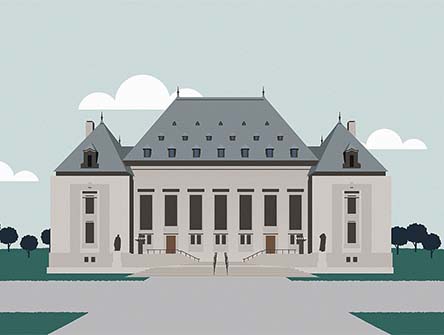Have legal regulators lost sight of the public interest?
Despite the best of intentions, legal regulators often can’t see the forest for the trees.

In December, a British disciplinary tribunal suspended a barrister for six months because he gave £2,300 ($3,930 CDN) to a legal aid client who had told him that she could not afford food or electricity. The barrister, who had recently reported earnings of £787,000 ($1.3-million CDN) a year from legal aid, told the disciplinary panel that he wanted to help the woman, who struggled with drug addiction, “turn her life around.”
The panel found that the barrister had compromised his independence, and that his conduct was “likely to diminish the trust and confidence which the public place in the profession”.
The disciplinary tribunal’s decision can be explained in part by the differences between the British and Canadian systems of legal regulation; in Britain the bar has traditionally enforced a more stringent view on the distance required between lawyers and clients. The penalty was also influenced by the panel’s finding that the barrister had failed to co-operate with the regulator.
Nevertheless, the panel’s conclusion is dubious or worse. The barrister’s decision to give money to a struggling client for food and shelter was “likely to diminish the trust and confidence which the public place in the profession”? Really? The opposite is true. There may have been a technical breach here, but given lawyers’ longstanding public image problem, such good faith acts of generosity are likely to improve the public’s trust in our profession.
Consider which of the following headlines would cause a member of the public to think better of our profession:
- “Top barrister on £787,000 a year who gave £2,300 to a drug-addicted Legal Aid client to help her ‘turn her life around’ is suspended for six months” (actual headline in The Daily Mail), or
- “Top barrister earning £787,000 a year refuses to give less than one day’s earnings to woman who can’t afford to eat, citing ‘professionalism concerns’” (what we might have seen had the barrister acted differently)
In our view, this barrister’s suspension exemplifies an out-of-touch regulator that has lost sight of what matters to the public.
In Canada, the enabling statutes of law societies impose on our regulators an overarching duty to protect the public interest. That is, no doubt, a weighty and difficult challenge.
But have Canadian law societies lost sight of what the public really values? Are our regulators addressing the issues that truly matter to the public? A few well-publicized decisions cause us to wonder.
Is the public’s trust and confidence in the profession enhanced when a law society, without receiving a complaint, initiates discipline proceedings for a lawyer’s “incivility” in his aggressive in-court conduct in defence of a client facing serious criminal charges? (This saga is now in its ninth year, at untold expense.)
Is the public’s trust and confidence in the profession enhanced when two lawyers who acted on a large corporate transaction are acquitted of allegations of conflict of interest after a 138-day hearing, and the law society is ordered to pay them $1.3-million in costs because the proceeding became unwarranted when the law society’s case collapsed?
Is the public’s trust and confidence in the legal profession enhanced when lawyers (and retired lawyers) are all required to sign and file away a template statement of principles in which they vow to promote diversity, equality, and inclusion?
Despite the best of intentions, legal regulators often can’t see the forest for the trees. In the name of protecting the public interest, law societies often double down on issues that reasonable members of the public don’t care about – expending enormous energy and resources that could be better spent on initiatives that could practically improve the relationship between the legal profession and the public.
One of the enduring memes from the 2008 U.S. presidential election campaign was Joe the Plumber, a middle-class small-business owner whose interests the candidates claimed to prioritize. Despite the man’s personal faults, Joe the Plumber became a useful surrogate for the ordinary citizen whose interests ought to be considered.
Law societies would do well to think about Joe the Plumber more often. Instead of embarking on lengthy and expensive disciplinary hearings for dubious or technical allegations of professional misconduct and enacting measures that are little more than symbolic gestures, legal regulators ought to ask, “What does Joe the Plumber think about this?”
As it stands, the answer too often is that he doesn’t care.

